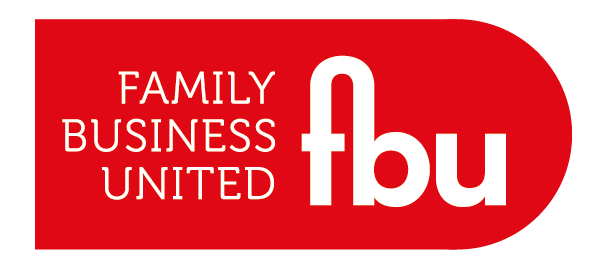Whether you’re a leader, a manager or an office junior, being the new starter in the office is both exciting and daunting. It’s only natural for feelings of anxiety and trepidation to set in as you prepare to start your next job. If you’re at a senior stage in your career it’s likely that you’ve experienced this many times already in your career. But there’s a good chance it will happen again, so it’s beneficial to recognise these feelings for what they are and understanding the effect that they have on you.

In this article, I share my perspective on leaving one managerial position in an organisation and starting at another. I’ve also outlined some of the simple approaches that I adopted which have helped me positively integrate with teams. Some have a function beyond the first day, and are useful practice on a more frequent basis.
So, you’ve left your job
There’s a good chance that you left your old job because:
- You didn’t like your line manager, boss or another colleague
- Sarah got promoted and you didn’t 😩
- The commute was hell, right?
- Something really wound you up, big time!
- You weren’t earning enough money
It might be something else, but you’ve left and now you’re starting again. It’s time to dust off, wave goodbye to the old and blink into a fresh new horizon. There are going to be new people, new responsibilities, a new commute, a new desk. If you’re really lucky, you probably get new kit to work with too. What’s not to love?

First day at the office
As your start date looms you begin to envisage the scene, playing it out in your mind. You might have a team looking to you for inspiration, and a boss looking across the office floor for confirmation that he’s made the correct hire. You’re wondering how you’ll fit in with the new team and the folks you’ll meet beyond. Have you made the right decision?
One thing’s for sure - on your first day you’ll want to be sharp. The reality is that you’re experiencing a mix of anticipation, nervousness and excitement at the prospect of a fresh start. This blend of negative and positive emotion creates an anxious energy that can throw the ‘normal you’ totally off balance, just when you want to be completely normal. Great, of all the feelings you don’t want on your first day! Sure, I could suggest that you try to relax, but seriously though...
6 Tips to Channel "Nervous Energy" Effectively
There are a few simple techniques that you can observe to help you cope with your emotions and manage your approach, allowing you to focus on being professional on your first day.
1. What was your name?
First up, you’re going to be meeting people. There’s going to be lots of new names and faces to remember, so how on earth are you going to ensure you don’t mix up Paul with Paolo? You know from experience that it’s awkward when this happens, but the chances are it will.
To help with name recall, upon introduction try to verbally repeat the person’s name back to them. This is a great way to establish a face-to-name connection in your mind, plus it gives an opportunity for them to correct you on pronunciation or even spelling if their name is tricky. Later on, if you do get it wrong, the best course of action is to take a deep breath, apologise and move on.
Your colleagues will be much happier if they’ve got any awkwardness around their name out of the way as early as possible, trust me.
2. Make a mental map of the camp
So who does what and where? Who do they speak to first, and how? Office politics are the unwritten rules that staff live by, an invisible code that steers office rituals. Sure, as a manager you could go in with all guns blazing and stamp your own agenda, but honestly, who does that and wins any favour with the team? Hard-nosed management styles might have worked in the past, but the modern office doesn’t run like this anymore.
The smart approach is to get a handle on company values, the culture and structure, and try to tap into shared views or opinions. If you’ve been really smart, you did this before you started. In fact it should be the reason you joined the company! Knowing how the cogs turn is a valuable piece of office knowledge, and one that will help you slot in more comfortably.
3. Getting to know you
Establishing who’s who around the office is one thing, but working out where best to spend your valuable time in the early stages of joining an organisation is critical. If you can’t play nicely with your colleagues, your working life isn’t going to run as smoothly as it could. Interpersonal relationships are the cornerstone of a successful career. You’ll need to work out just who best to allocate time with so that you can get up to speed as quickly and efficiently as possible.
This isn’t to suggest that it’s not worth building professional relationships with all of your colleagues to some degree, but some are just naturally more useful than others in week one. It’s easy to overlook this and just go with whoever comes across as the most friendly. But you’re not there to make friends, you’re there to work.
4. Don’t just show up
The old saying “it’s not what you know, it’s who you know” is as true today as it ever was. Just as important as establishing connections, being visible at the office is a key consideration for anyone wanting to progress in their career. Without visibility in the workplace, it’s harder for colleagues to recall exactly what function you perform and how it benefits the business. This fact has become a bit of a hot topic given the increasing popularity to work from home, or WFH as it’s known, where it’s estimated that at least 70% of staff now do so at least once per week. Being visible isn’t about just showing up, it’s about participation, engagement and communication.
70% of people globally work remotely at least once a week, study says
Here are some tactics you might use:
- Request high profile projects or tasks
- Be vocal at meetings
- Assist your colleagues with their work
- Represent your team, at an event for example
- Participate in post-work activities
Of course, ensuring visibility isn’t something that you can establish on day one or even in month one, but adopting a mindset of being visible as a priority will help you to set yourself on a course to become more prominent around the office.

5. Get stuff done
If you’re going to accomplish your goals at work, you have to know what they are, so write them down. More importantly, if you’re going to be able to get them done, they need to be realistic objectives. It’s amazing that you have high hopes and want to win that innovation award, bring in £1m of new business or reach the top of the ladder, but it’ll be really painful if you’ve told everyone that’s what you hope to do, then fail.
Try to set SMART goals which are:
- Specific
- Measurable
- Attainable
- Relevant
- Time Bound
Using this principle will help you reign in unrealistic objectives that set you up for failure. The SMART model can help motivate you to move towards a definition of your goal, a route to achieving it and a key performance indicator (KPI) to measure the success of the work.
6. Be positive

Regardless of where you’re starting at in your new role, being positive is important. This doesn’t mean bouncing off the walls or telling jokes, it means focusing on those things that you’re great at, and reminding yourself of the tasks or projects you’ve received praise for or carried out successfully in the past. React to office conversation positively rather than negatively, seek out the good and tailor your response mindfully.
It can be tempting to adopt a ‘strictly business face’, focus on work and avoid livelier office discussion in an attempt to maintain your professionalism. But this can potentially isolate you from the outset, signalling an unwillingness to participate with the lighter aspects of office life.
I’ve always strived to find a comfortable middle-ground which has allowed me to develop good camaraderie, balancing the professional traits of my character with the more relaxed humorous side. It’s a tricky one to gauge as it’s likely to require quick-thinking situational evaluation before you respond, but you’ll have to work this out on the job.
Summary
The last three roles that I’ve had have all been at senior manager level. Possibly due in part to my age (I’m prepared to share the fact that I’m in my late 40’s, but that’s it). But I like to think that it’s due to the fact that I’ve pushed on with my career with more enthusiasm and clarity of direction since my late 30’s. This is my third job in plenty less than 10 years, so it’s safe to say that I’m getting around in my middle age. But this is the one. I chose to pursue my current role because I understood the people, culture, values and practice, and knew that this was the right move. This is where I want to be, for sure.
Sure, you’re going to be the newbie for several weeks, possibly months, but the best approach is to tune into that newness. Treat it like a journey of discovery, an untrodden path where you can explore, uncover different practices, meet new characters and grow. Try to craft your mindset, your actions and play to your strengths.
Above all, try to enjoy the ride.




